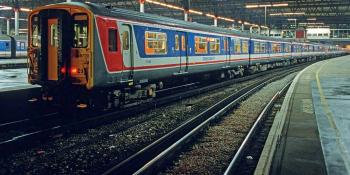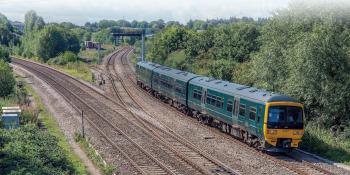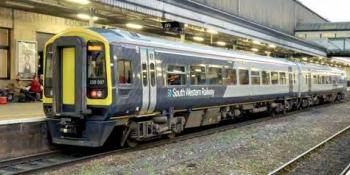TRANSPORT FOR the North has unveiled its Strategic Transport Plan and initial Investment Programme, which would see up to £70 billion invested in the region’s transport network by 2050.
The plans were approved by TfN’s board on 7 February and launched four days later at TfN’s inaugural conference in Sheffield.
They represent TfN’s statutory advice to Government on the ongoing priorities for enhancing sustainable and inclusive connectivity across the North.
TfN’s initial Investment Programme identifies a funding requirement for strategic transport of £60-70 billion in the period to 2050. To deliver on TfN’s plans, an average of £2.0-2.3 billion will need to be spent on strategic road and rail infrastructure in the North each year, which TfN estimates is between £700 and £900 million in excess of existing committed levels of investment. According to the plan, such investment would contribute towards an additional £100 billion in economic growth for the North’s economy, creating 850,000 extra jobs.
The Strategic Transport Plan (STP) sets out priorities based on the themes of Connecting People, Connecting Businesses and Moving Goods. It notes rail currently accounts for just 1.1% of total trips across the region, but around 7.4% by distance travelled.
FLAGSHIP SCHEMES
Within rail, a set of desirable minimum standards has been identified. These include average journey speeds of at least 80mph for long-distance services, 60mph for inter-urban and 40mph for local and suburban routes. A 50% improvement in the average speed of freight services is targeted by 2028, along with enhancements to support longer and heavier freight trains through gauge clearance work. Better connections to the region’s airports and ports are also among key ambitions.
The plan features existing committed investments including improvements through the current Northern and TransPennine Express franchises, HS2 and the TransPennine Route Upgrade (TRU), with a call for Government to give TfN a ‘significantly strengthened’ role in the design and implementation of HS2 Phase 2b, the TRU and Network Rail renewals in the North. An integrated and smart travel plan also features, beginning with introduction of smartcards on rail and concluding with a move to account-based travel.
The longer-term programme includes TfN’s flagship Northern Powerhouse Rail scheme, which aims to create an improved network connecting key cities across the region. Current plans envisage a new line linking Manchester and Leeds via Bradford as well as a new line into Liverpool, along with upgrades to existing routes and provision of key junctions to connecting with HS2. TfN is targeting reaching the detailed consent stage in the early 2020s, enabling first phase construction from 2024.
TfN says a review of the initial Investment Programme will start this summer as part of the Government’s Spending Review, with an update likely to follow in early 2020. The Investment Programme will then be reviewed periodically after that to take account of further developments



